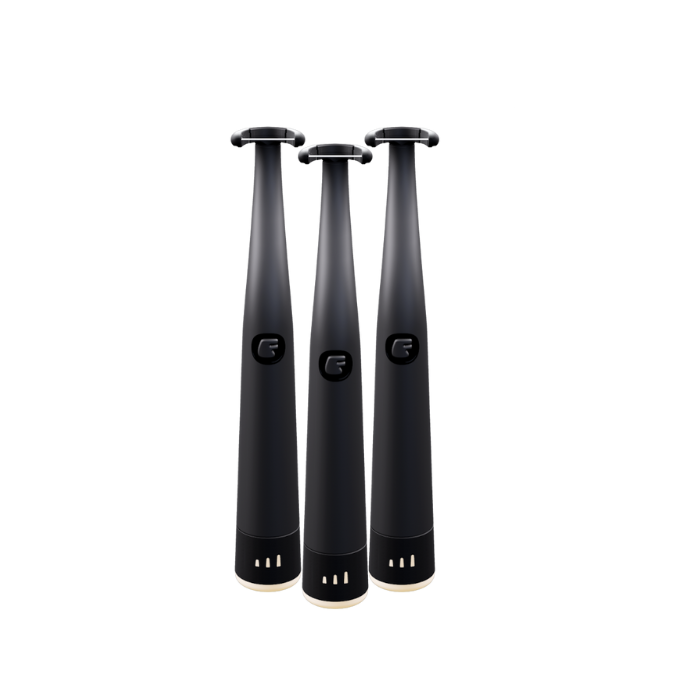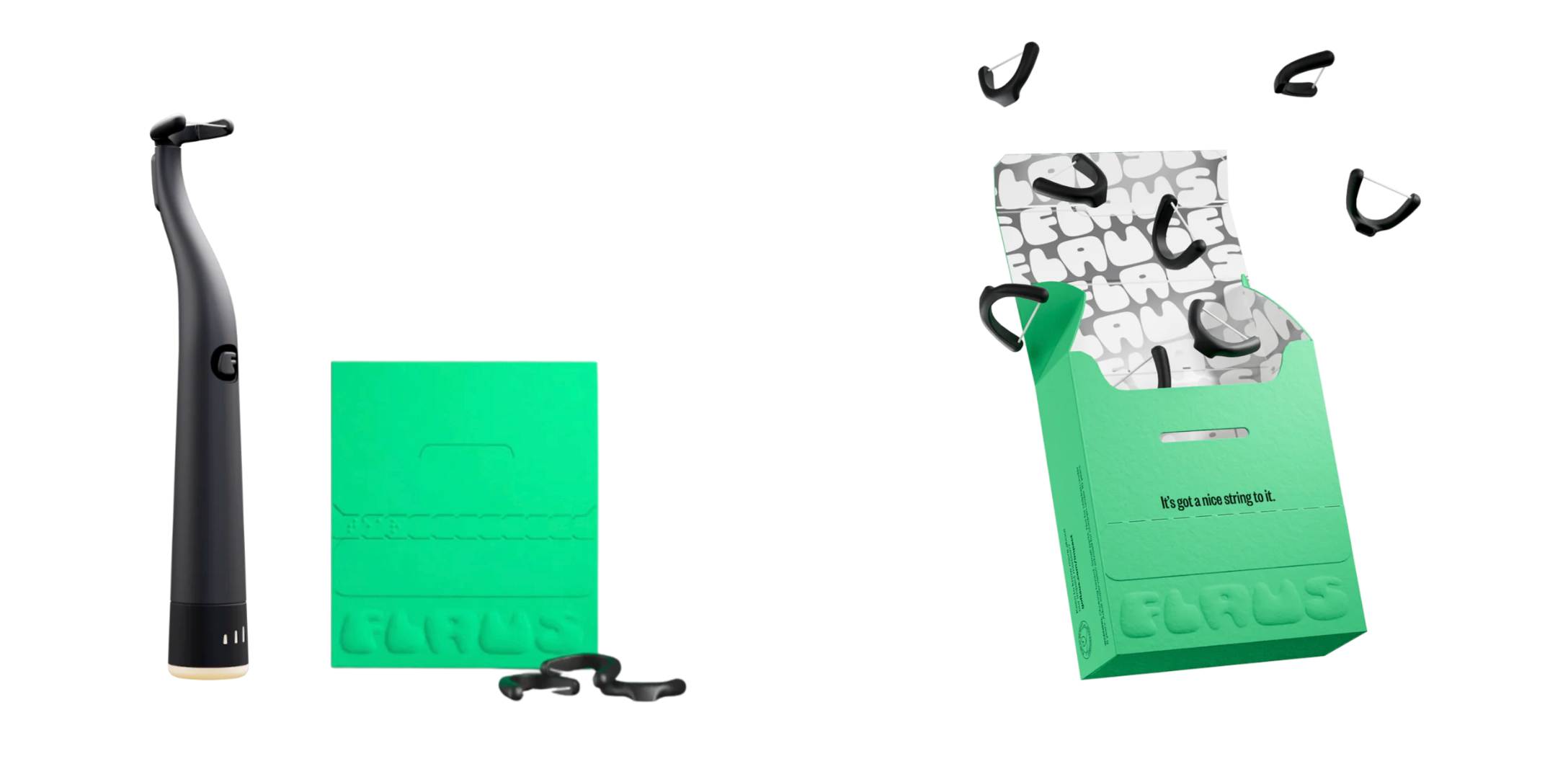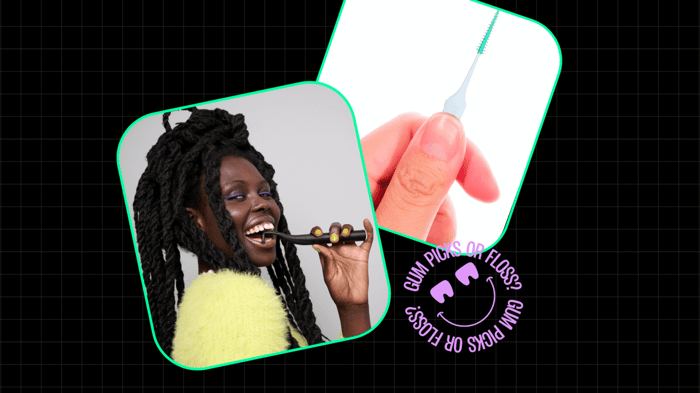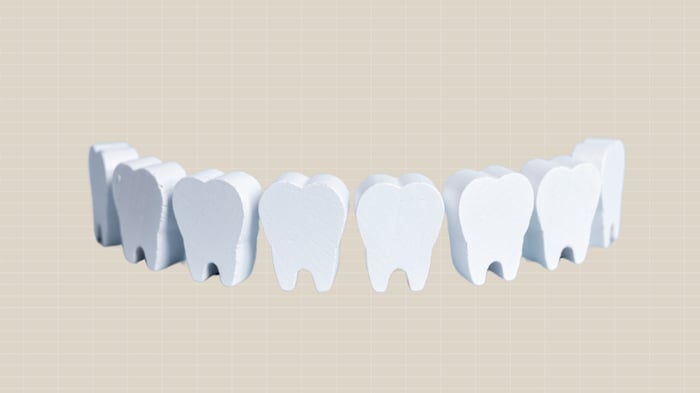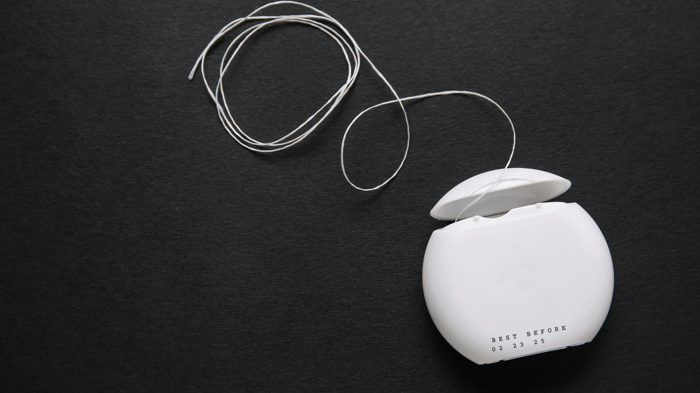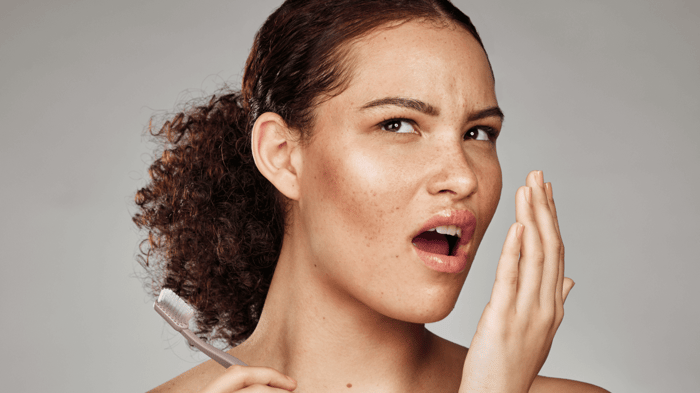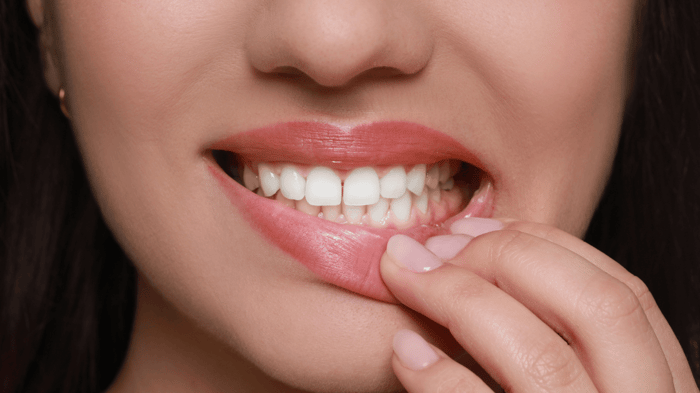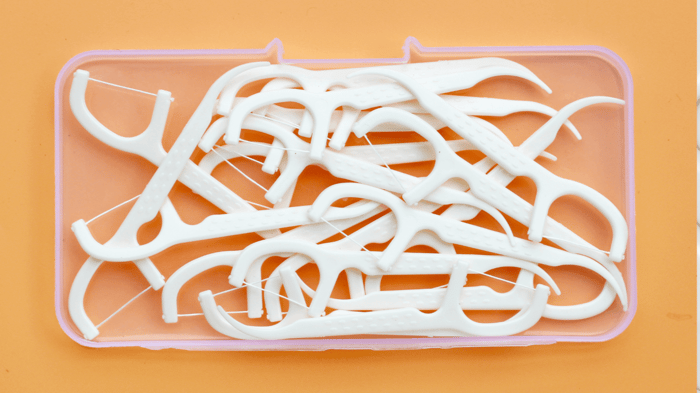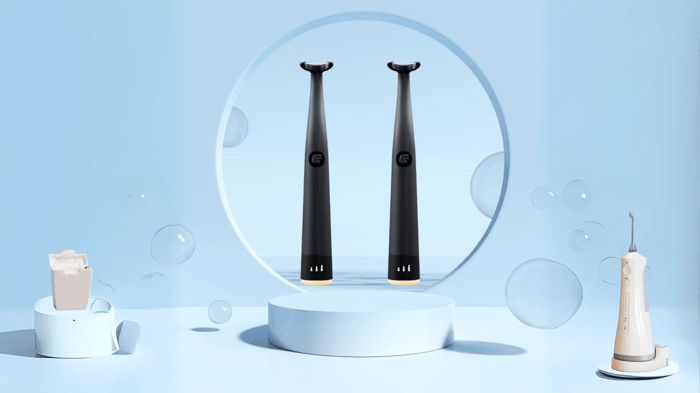We might be able to find 100 new recipes in an hour if you're on the right side of TikTok - but the recipe for good dental health remains mostly tried and true. Among traditional routines, flossing stands as one of the most indispensable tools for your oral health. Yet how often we should be flossing is still some what of a debate. We know we need to floss, but... can we do it just once a day? Multiple times a day? After ever meal? Only before bed? This blog post delves deep into this topic dusting off myths and unearthing facts about flossing that could be pivotal in protecting your pearly whites from various dental dramas! Get ready to sink your teeth in to the age old question of "Should I floss after every meal?"
Should I floss after every meal? Flossing after every meal is a good way to maintain good dental health. Regular flossing helps disrupt biofilm. When left alone, biofilm can lead to plaque buildup, gum inflammation, and other dental issues. It is important you are flossing with care and following proper steps to ensure that you do not irritate your gums. Incorporating flossing into your daily oral hygiene routine can help prevent cavities and promote healthy gums.
Is Flossing After Every Meal Necessary?
Flossing is an essential part of oral hygiene. It helps to remove food particles, plaque, and bacteria from places that toothbrushes cannot reach - spaces between teeth and under the gumline. The American Dental Association recommends flossing once a day, which is enough to keep your teeth and gums healthy. But is it even better if you floss after every meal?
Let's imagine you ate something with high sugar content like a candy bar or a soda. The sugar in these types of food fuels bacteria formation, increasing the risk for tooth decay and cavities. In this case, flossing after eating would be beneficial as it removes any leftover sugar trapped in between the teeth, limiting bacterial growth and decreasing the formation of plaque.
On the other hand, constantly flossing can irritate sensitive gums or cause bleeding. In such cases, experts recommend using a mix of floss and, flossing accessories (such as water flossers or interdental cleaning brushes), which can be a bit more gentle on your gums, while helping to get a similar result.
Ultimately, though that extra gum TLC given by flossing after each meal, typically doesn't cause harm. However, it's always suggested that you use proper flossing techniques and always contact a dental professional if you have any concerns or worries.
Now that we know when extra flossing could be beneficial, let's look at its impact on dental health.
Impact on Dental Health
Flossing is an indispensable piece of the dental hygiene puzzle. It promotes good oral health by preventing harmful build-up of plaque and tartar which can lead to gingivitis (gum inflammation) or periodontitis (severe gum disease that can harm tissues surrounding teeth). When combined with regular brushing habits and routine dental check-ups, it is one of the most effective ways of maintaining optimal oral hygiene.
Yet so many people either forget or simply don't incorporate flossing into their daily routines. In fact, almost 60% of Americans admit to not flossing regularly. Poor oral hygiene can not only lead to sensitive teeth or even tooth decay or loss, but larger health issues as well.
Medical professionals have noted a rise in gum-related diseases over the years. Individuals who floss regularly have lower levels of harmful bacteria in their mouths than those who do not. Hence incorporating flossing into your daily routine is vital if you want to maintain good dental health.
Now that we know the importance of flossing let's look at how often one needs to floss.
Flossing Frequency and Dental Health
We learned above that flossing is an essential part of good oral hygiene. It helps remove plaque, food particles, and debris between teeth that brushes often miss. Over time, plaque will harden into tartar if not removed, leading to difficulties in cleaning between teeth and possibly causing gingivitis, the early stage of gum disease. So, what is the recommended frequency for flossing? Is flossing after every meal necessary?
The American Dental Association (ADA) recommends flossing at least once a day for improved dental health. While flossing after every meal may seem like a good idea, it might not be the most practical option. For starters, some people may not have access to floss or interdental cleaners on the go. Furthermore, the time involved in flossing can add up quickly.
To summarize some other professional recommendations on frequency of flossing:
| Flossing Frequency | Recommended By |
| At least 1x day | American Dental Association |
| Once daily before bed | Academy of General Dentistry |
| After Meals | Oral B |
Despite these recommendations' variedness, it's important to note that they all agree on one fundamental principle: Consistency is key when it comes to oral hygiene practices.
Think of your teeth as a daily chore - like washing dishes. You typically wouldn't wait until the sink is overflowing and there are no dishes left in the cupboards to take care of them; you'd wash them consistently throughout the week to avoid build-up and make your life easier in the long run.
Just like above, consistency is important for your oral hygiene too. And yet, even though studies have shown the benefits of flossing - people still aren't flossing regularly:
- According to the American Dental Association, nearly one-third of Americans don't floss daily.
- A study published by the Journal of Periodontology reported that those who flossed regularly had a 38% lower risk of gum disease compared to those who did not.
Professional Recommendations
Apart from frequency of flossing recommendations, studies have shown that incorporating interdental cleaning techniques like traditional string floss, electric flossers, water flossing, and interdental brushes contributes to better dental health. For instance, brushing in combination with flossing has been proven to reduce plaque build-up by up to 80%.
Ultimately, it's vital to consult your dentist or hygienist regarding the most suitable oral hygiene practices and frequencies based on your specific oral characteristics. Factors such as spacing between teeth, the presence of implants or orthodontic appliances, and other medical conditions may require tailored approaches.
Remember, the goal is healthier teeth and gums. Find an approach that works best for you and be persistent with it.
The Science Behind Flossing and Mealtime
We've all heard the age-old adage of brushing your teeth twice daily, but what about flossing? Is it essential to incorporate flossing into your dental care routine after every meal? Are there any scientific backing claims that support this habit? In short, yes. Flossing matters. Ensuring good oral health lies in actively preventing the buildup of plaque and bacteria within your mouth, including biofilm (a layer of microorganisms on your teeth).
Let's say you just had lunch and unknowingly consumed some food particles that got stuck between your teeth. As food particles begin to break down by the saliva in your mouth, they create acid, which can lead to enamel erosion or cavities. Brushing immediately after can damage the enamel layer; thus, it's recommended to wait at least 30 minutes before brushing.
Therefore, it might be beneficial to floss directly after lunch to remove any remaining debris and promote remineralization within 30 minutes of waiting for tooth enamel to build itself back up.
However, it is important to keep in mind that continual pressure with floss can cause gum recession resulting from weak or damaged gums. As such, using a gentle hand movement while ensuring you generously cover all areas makes for an effective flossing routine that does not negatively impact your gums.
Now that we understand the importance of flossing after every meal let's explore how specifically it affects biofilms.
Flossing and Biofilm Disruption
Biofilm refers to various colonies of bacteria nesting upon surfaces such as our teeth. With time, these colonies will form plaque, which harbors more bacteria growth. Ultimately, biofilm accumulation leads to tooth decay and gum disease. This connection highlights how critical it is to disrupt biofilm formation regularly.
Frequent flossing mechanically breaks up the bacterial ecosystems within your mouth, helping to prevent biofilm formation that can lead to more severe dental issues. In addition, combining flossing with an antiseptic mouthwash appears to exhibit a synergistic effect.
Think of biofilm-like weeds in a garden. Weeds will continue to grow until they're uprooted or killed entirely. Biofilms mimic similar behavior; even if you brush daily, leaving debris stuck between teeth supports the continuous growth of bacteria communities.
In contrast, flossing regularly ensures no stone is left unturned by uprooting any potential biofilm communities before they can mature and cause additional damage.
Maintaining a Healthy Flossing and Brushing Routine
Most people understand the importance of brushing their teeth but forget that flossing is equally crucial. Brushing only removes food particles and plaque from the surface of your teeth, whereas flossing removes particles between the teeth. When these particles are not removed, they can create tartar over time, which leads to gum disease.
To have optimal dental health, it is recommended that you brush your teeth twice a day and floss at least once daily. This clears any remaining bacteria in your mouth while also keeping your gums and teeth healthy.
For instance, after morning breakfast, and before bedtime every night, take a few minutes to clean your teeth thoroughly using proper technique to ensure a properly cleaned mouth.
When brushing your teeth, pay attention to each tooth's inner and outer surfaces, as well as the chewing surfaces and the tongue. Use fluoride toothpaste for best results. After brushing, rinse out with water or mouthwash to remove any residue.
When flossing, wrap the ends around your index fingers and slide the floss in a zigzag motion between each tooth. Be careful not to snap the floss into your gums in order not to cause injuries or infections.
Routine dental cleaning by a dentist is highly recommended to maintain good oral health. Regular dental checkups help identify potential issues like cavities or gum disease that need professional attention.
Finally, there is often debate on when exactly during the day one should brush their teeth. Some suggest brushing immediately after meals; however, this is contested as after eating acidic or sugary foods and drinks, the enamel on your teeth is at it's most vulnerable. Therefore rinsing with water or mouthwash immediately following a meal might be more effective for maintaining dental health.
With the understanding of how maintaining a healthy flossing and brushing routine is essential to oral health, let's explore alternatives to traditional floss.
Alternatives to Traditional Floss
Electric flossers are a great way to maintain good oral hygiene, and Flaus is a good option for those looking for an eco-friendly and effective electric flosser. Here are some reasons why using an electric flosser is a great alternative to traditional flossing:
-
Easy Reach: They can reach tight spaces and molars easily due to the ergonomic handle
-
Easy to use: Electric flossers are easy to use and require less manual dexterity than traditional flossing
-
Comfortable: They can also be less messy and more comfortable to use than string floss, as you don't have to put your fingers in your mouth
-
Encourages good habits: Many people find electric flossers more enjoyable to use than traditional floss, which can encourage them to floss more regularly
-
Eco-friendly: Flaus is the world's first eco-friendly electric flosser, which can reduce waste and help protect the environment. Flaus uses 90% less floss than traditional flossing and offers a Flaus head recycling program to ensure that the floss heads are properly recycled at a dedicated oral care recycling facility.
Some of the features that Flaus has include:
-
Sonic vibrations: At 18,000 sonic vibrations/min, Flaus moves quickly and easily between tight teeth to massage gums and remove plaque and debris from tight spaces your toothbrush can’t reach.
-
Ergonomic Soft Touch Handle: With a design that feels as familiar as your favorite electric toothbrush, Flaus′ premium, ergonomic soft-touch handle gives you full control over hard-to-reach places while keeping your fingers (and the 10 million bacteria that live on them) out of your mouth.
-
Waterproof: Whether you are flossing on the go or multi-tasking in the shower, Flaus is waterproof and has you covered.
-
High Performing Floss Heads: Floss heads are fitted with high performing glide floss strong enough for the tightest of teeth, made with recyclable plastic and use 30% less plastic than traditional floss picks. You can also recycle your Flaus heads through a Floss Head recycling program where the floss heads are sent to be recycled in a dedicated oral care recycling facility.
-
Two Month Battery Life: The rechargeable flosser has a two month battery life and comes with a charging base and USB cable to boot.
-
Dentist Designed and Recommended: Flaus was designed with dental experts from day one to ensure the very best clean.
Overall, electric flossers, like Flaus, can be a great way to maintain good oral hygiene and encourage good habits. They are effective, easy to use, and eco-friendly, making them a good option for those looking for an alternative to traditional flossing.
Habits for Optimal Dental Health
Good dental health doesn't happen by accident; it is a conscious effort that requires commitment and discipline. Here are some habits that can help you maintain optimal dental health.
Brush your teeth twice daily: Brushing thoroughly with fluoride toothpaste twice daily removes plaque, which is a film of bacteria that forms on teeth and gums. It's important to spend at least two minutes brushing each time, focusing on each quadrant of the mouth equally. It's best to brush using a small circular motion to remove as much plaque as possible without damaging the gums.
Floss: Flossing regularly (or Flausing regularly as we like to say around here) can help you prevent periodontal disease and fight off decay. Flossing removes food and bacteria from between teeth that a toothbrush cannot reach. If you have braces or other orthodontic appliances, it's especially vital to floss frequently because these devices can hold onto food particles and increase your oral health risks.
Cut back on sugar: Sugary drinks and foods contribute to plaque buildup on teeth, which causes cavities. Be mindful of what you consume throughout the day, especially when snacking or indulging in between meals.
Use mouthwash: Some experts recommend using an antibacterial mouthwash daily to kill germs that cause bad breath and gum disease. However, others argue that it's unnecessary if you brush and floss regularly. The decision may come down to personal preference, but mouthwash can be a useful tool to supplement your normal dental regime.
Chewing sugar-free gum: Chewing sugarless gum enhances the production of saliva, which can help wash away food particles and neutralize acid in the mouth. Look for gum containing xylitol, a natural sweetener that can reduce the number of bacteria in the mouth.
Visit your dentist regularly: Finally, it's important to visit your dentist for regular cleanings and checkups at least twice every year. Dentists can detect oral health problems before they become worse. Regular check-ups can prevent future costly dental procedures and treat any issues before they become emergencies.
Are there any potential risks or drawbacks if you answer 'yes' to the question of 'should I floss after every meal?'
While flossing after every meal is generally encouraged for good dental health, there can be potential risks and drawbacks. Overly aggressive flossing or improper technique may lead to gum irritation or even damage. Furthermore, a study conducted in 2023 found that excessive flossing could potentially contribute to gum recession. Therefore, it is important to strike a balance and ensure proper flossing techniques to avoid any potential risks or drawbacks associated with frequent flossing.
What are the benefits of flossing after every meal?
Flossing after every meal offers numerous benefits for good dental health. Firstly, it helps to remove food particles stuck between teeth, preventing the buildup of plaque and reducing the risk of cavities. A study by the American Dental Association found that regular flossing can reduce tooth decay by up to 40%. Additionally, flossing stimulates gum health by removing bacteria and preventing gum disease. Overall, making flossing a habit after every meal ensures a cleaner mouth, fresher breath, and healthier gums.
How often should I visit the dentist if I choose to floss after every meal?
If you choose to floss after every meal, it's still essential to visit the dentist regularly for check-ups. While flossing after every meal is great for removing food particles and maintaining oral hygiene, it doesn't replace professional dental care. Regular dental visits can help detect and prevent oral health issues that may not be visible or treatable through daily flossing alone. According to the American Dental Association, most people should visit the dentist at least twice a year for routine check-ups and cleanings, regardless of their flossing habits.
🌟 Discover a Revolution in Oral Care! 🌟 Tired of traditional flossing? Experience the future with the Flaus Electric Flosser. ✨ Faster. Efficient. Effortless. ✨ Don't just read about it, make the switch today! 👉 Get Your Flaus Electric Flosser Starter Kit Now! 👈








